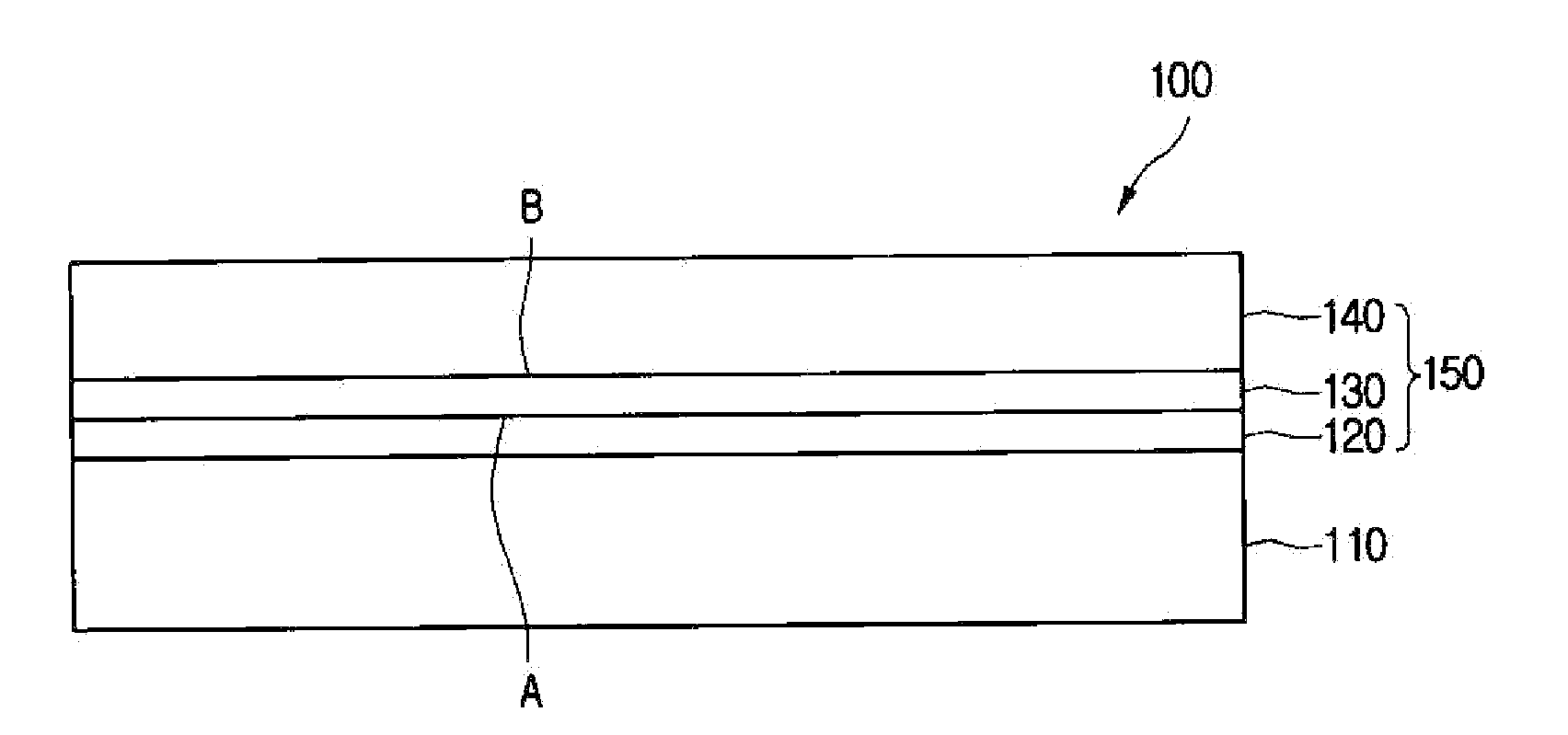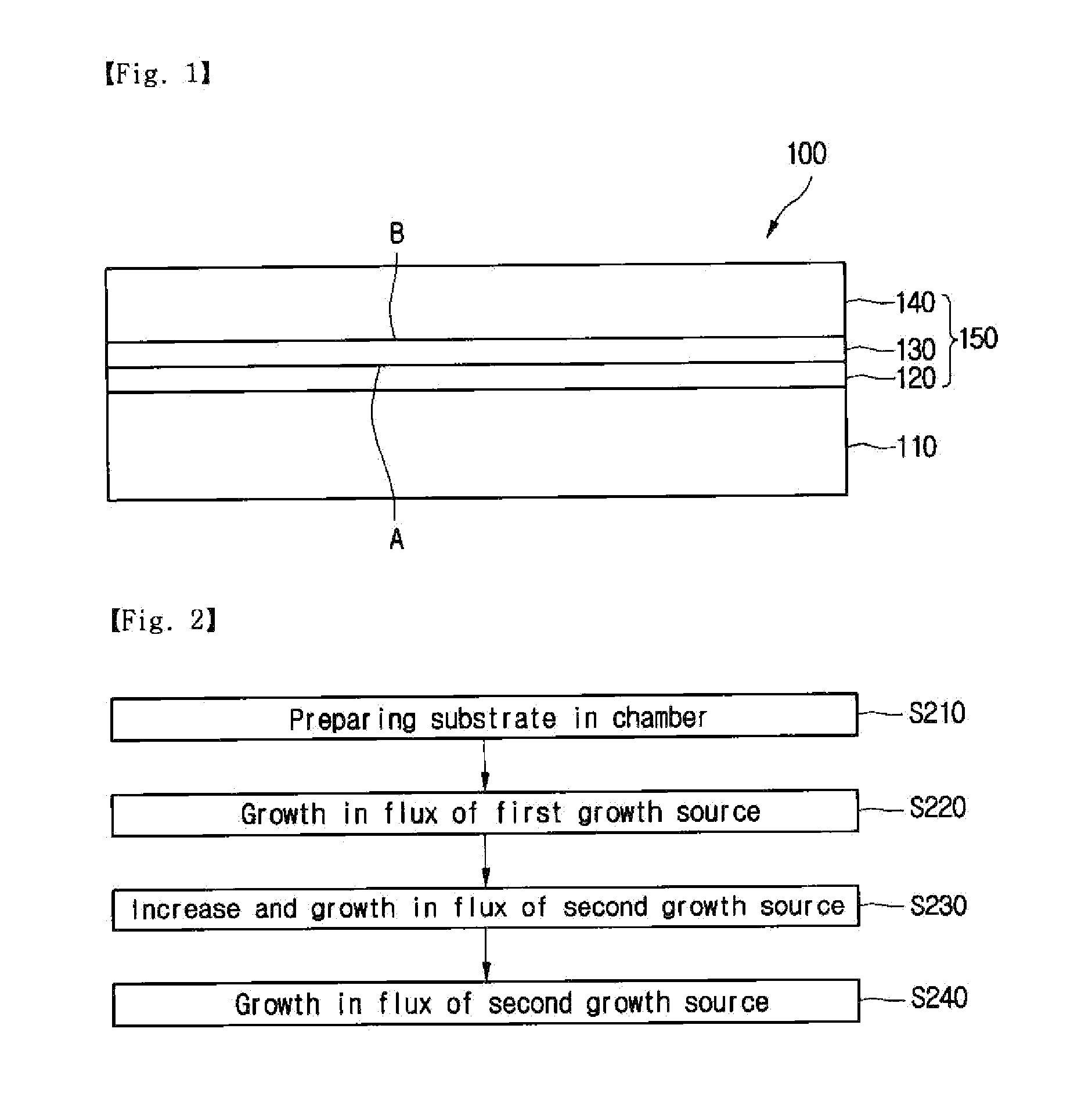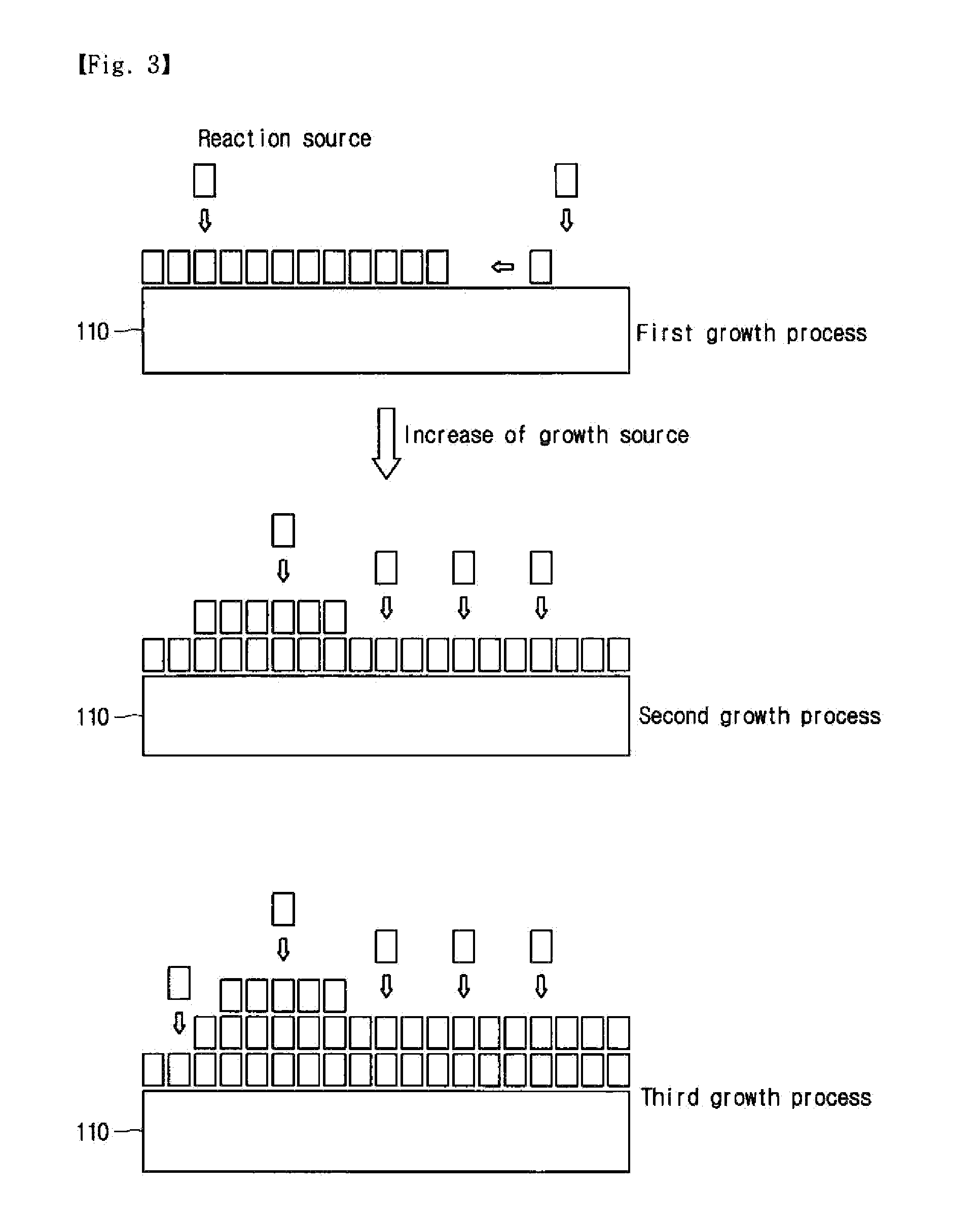Epitaxial wafer and switch element and light-emitting element using same
a switch element and epitaxial layer technology, applied in the field of epitaxial wafers, can solve the problems that the silicon or the apphire does not meet the requirements of the electronic elements, and achieve the effects of reducing the flux of the reaction source, internal defects, and minimizing the defects of the epitaxial layer surface defects
- Summary
- Abstract
- Description
- Claims
- Application Information
AI Technical Summary
Benefits of technology
Problems solved by technology
Method used
Image
Examples
first embodiment
[0066]FIG. 2 is a flowchart showing the fabricating process of an epitaxial wafer of FIG. 1 according to a FIG. 3 shows the fabricating process of FIG. 2.
[0067]Referring to FIGS. 2 and 3, the substrate 110 may be provided in a reaction chamber (S210).
[0068]Although the substrate 110 may include one of 3C—SiC, 4H—SiC and 6H—SiC for the illustrative purpose, the material constituting the substrate 110 may be varied depending on an element or a product to be produced in the final stage.
[0069]The substrate 110 may be undoped or may be doped with an N type dopant or a P type dopant, but the embodiment is not limited thereto.
[0070]Before the substrate 110 is loaded into the reaction chamber, a cleaning process may be performed in order to remove an oxide layer naturally created on the surface of the substrate 110.
[0071]The substrate 110 may, for example have an off angle of about 0° to 10°, but the embodiment is not limited thereto. The off angle may be defined as an inclined angle of th...
second embodiment
[0111]FIG. 5 is a flowchart showing the fabricating process of the epitaxial wafer of FIG. 1 according to a
[0112]In the following description of the second embodiment, the structure or functions the same as those of the first embodiment have been described above, and the details thereof will be omitted. Those skilled in the art can easily understand the same structure of functions as those of the first embodiment by making reference to the description of the first embodiment.
[0113]Referring to FIG. 5, the substrate 110 may be provided in the reaction chamber (S310).
[0114]The substrate 110 may include one of 3C—SiC, 4H—SiC and 6H—SiC.
[0115]When the substrate 110 is provided, the reaction source may be introduced for the epitaxial growth in the reaction chamber.
[0116]The reaction source may include growth source for the epitaxial growth, doping source for doping, and dilution gas, but the embodiment is not limited thereto.
[0117]The epitaxial growth is performed on the substrate 110 th...
PUM
 Login to View More
Login to View More Abstract
Description
Claims
Application Information
 Login to View More
Login to View More - R&D
- Intellectual Property
- Life Sciences
- Materials
- Tech Scout
- Unparalleled Data Quality
- Higher Quality Content
- 60% Fewer Hallucinations
Browse by: Latest US Patents, China's latest patents, Technical Efficacy Thesaurus, Application Domain, Technology Topic, Popular Technical Reports.
© 2025 PatSnap. All rights reserved.Legal|Privacy policy|Modern Slavery Act Transparency Statement|Sitemap|About US| Contact US: help@patsnap.com



